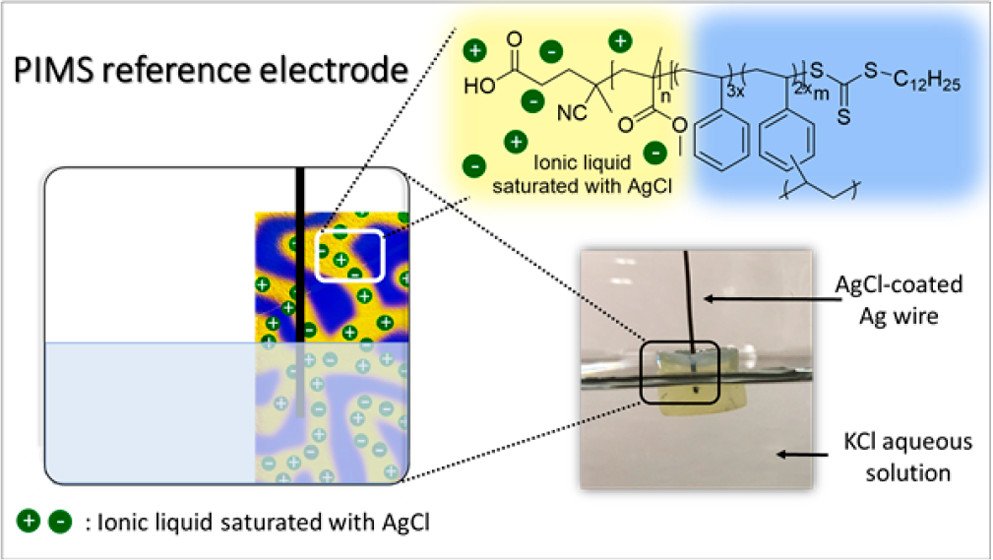Research on ionic liquid-based reference electrodes "Editors' Choice"

MINNEAPOLIS / ST. PAUL (09/25/2017)—Graduate student researchers Evan Anderson from the Department of Chemistry, and Sujay Chopade from the Department of Chemical Engineering & Materials Science are lead co-authors of a paper featuring their research on ionic liquid-based reference electrodes. The article, "Self-Supporting, Hydrophobic, Ionic Liquid-Based Reference Electrodes Prepared by Polymerization-Induced Microphase Separation," has been featured in ACS Sensors and selected as an Editors’ Choice by the American Chemical Society.
Additional authors are CEMS graduate student Peter Schmidt, and professors Philippe Buhlmann, Marc Hillmyer and Timothy Lodge who advise the students. Anderson is a fourth-year chemistry graduate student working under the tutelage of Buhlmann, and Chopade is a fifth-year CEMS graduate student co-advised by Hillmyer and Lodge.
The researchers have designed a convenient and reliable synthesis of ionic liquid-based reference electrodes by polymerization-induced microphase separation. This technique allows for a facile, single-pot synthesis of ready-to-use reference electrodes that incorporate ion conducting nanochannels filled with hydrophobic ionic liquids, supported by a mechanically robust crosslinked polystyrene phase. These reference electrodes exhibit a low resistance as well as good reference potential stability and reproducibility when immersed into aqueous solutions varying from deionized, purified water to 100 mM KCl, while requiring no correction for liquid junction potentials.
Previously, polymerization-induced microphase separation (PIMS) strategy has been implemented to synthesize nanostructured polymers, and to develop robust solid-state ion-conducting polymer composites targeted for next-generation lithium-ion batteries and fuel cells.